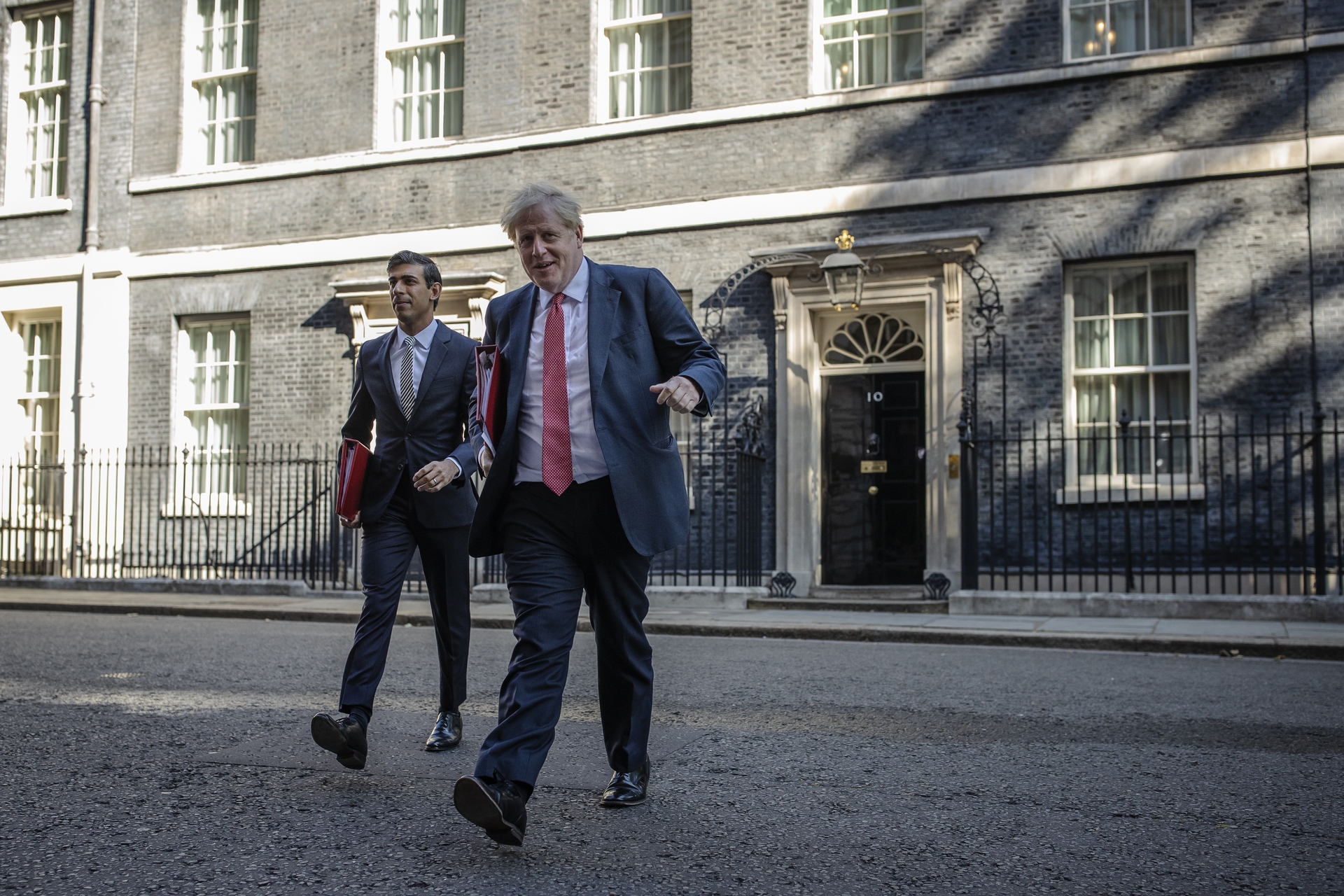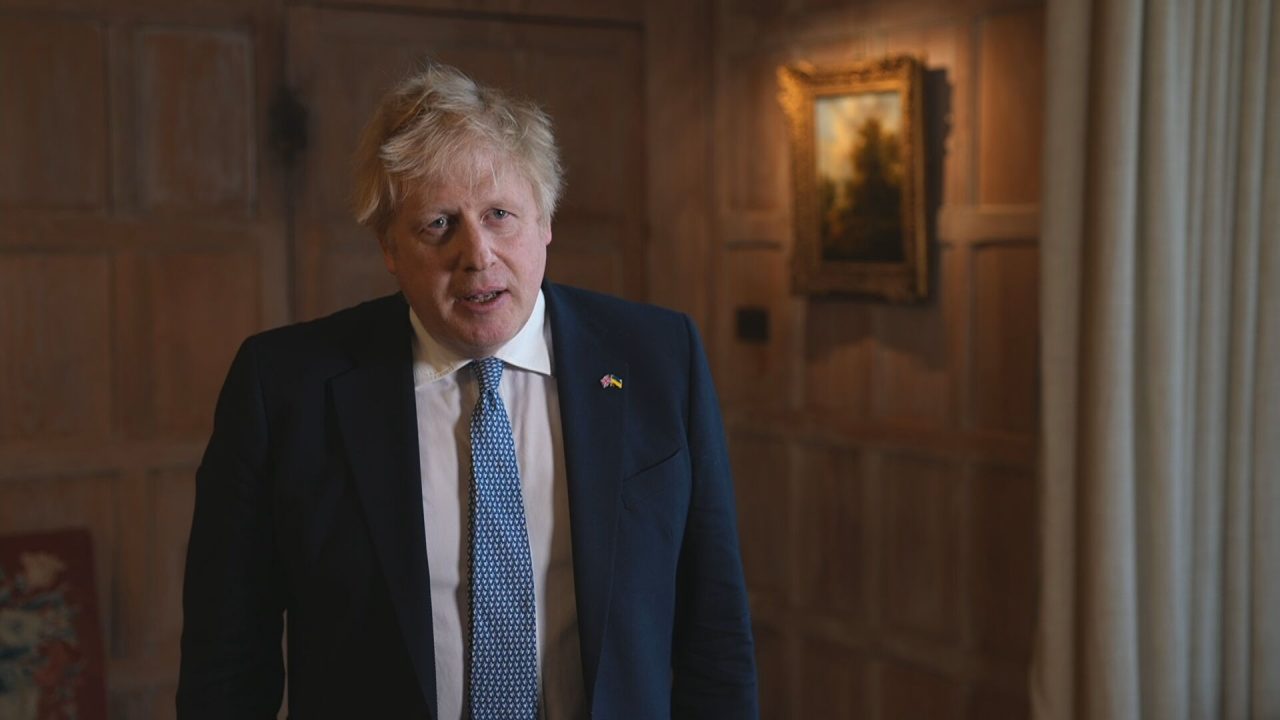Partygate has claimed a ministerial scalp – just not the one we might have thought was likely.
Justice minister Lord Wolfson resigned, in essence because the Prime Minister had failed to take an honourable course of action by quitting after becoming the first sitting holder of the office to be punished for breaking the criminal law.
Wolfson looked at the issues involved for a law maker with a crystal-clear view. You can’t make the law and break the law with impunity.
In short, Wolfson is saying, ‘if you behave as the Prime Minister does, you degrade the office and treat the notion of ministers being straight with parliament with contempt’.
Boris Johnson has taken sophistry and elevated it as a strategy involving a repeated misleading of parliament.
 Getty
GettyThere must have been a period on Tuesday when the Prime Minister thought the issue might bury him. Chancellor Rishi Sunak had also broken the law and the long silence from the Treasury suggested, allied to the rumour mill, that Sunak might resign.
In such circumstances, Johnson’s apology, delivered in a manner and tone which should see a nomination for next year’s Olivier awards, might have failed to draw a line under the issue. It might yet fail. Parliament is back in business next week.
You get the impression that in politics nowadays, armies of advisers sit around working out the best line of defence, the best strategy to deflect, the most absurd brass-necked lines that might just hold in the mouth of a politician who venerates survival above all else.
It appears a sober assessment of reality rarely gets a mention. The idea that an honourable course of action may involve departing the stage is now laughable.
Honour and integrity are now words without meaning. They are deployed for dramatic effect when a politician has to act their way out of trouble.
It wasn’t always thus.
The Falklands War was 40 years ago. When Argentina invaded, the foreign secretary Lord Carrington resigned. Invasion happened on his watch and honour dictated he should go.
Sir Geoffrey Howe resigned from Margaret Thatcher’s cabinet because of her policy on Europe. Nigel Lawson quit on a point of principle too, namely that political advisers should not unduly influence policy matters which should be the preserve of ministers.
On the Labour side, Robin Cook resigned rather than have to defend the Iraq war – a policy with which he fundamentally disagreed.
In most cases, the act of resignation leads to a trip into the political wilderness. However, politicians who have more than a passing acquaintance with their conscience prefer relative anonymity and political impotence to a role in a game of political charades.

The Prime Minister has been lucky that events have been the ultimate deflector of Partygate. However, with MPs back in the Westminster village next week, Johnson will have to face them on Tuesday.
More fines might have arrived by then. The sense of crisis might intensify. The rage of those who obeyed the rules he insisted on and broke might deluge the inbox of honourable members. The tea-room hubbub might find its way to plot his downfall.
The Prime Minister’s tenure should not depend on how well he holds a line or on the inability of Conservative MPs to follow the logic of their angry constituents.
It should be quite simple. Honour dictates he resigns, for it is the only course of action which appropriately sanctions his conduct, his pig headedness before parliament and his taking the entire electorate as mugs.
He will not take the honourable route. If he is not ousted, then every Conservative MP should ask themselves a basic question. Is the saving of one man’s skin worth bringing his office and the institution of parliament into contempt?
Duty, another word in danger of being so cheapened as to be meaningless. Duty dictates Tory MPs act. If they don’t, then they bless conduct that has appalled people for whom the pandemic will be forever defined in hurt and tragedy.
Follow STV News on WhatsApp
Scan the QR code on your mobile device for all the latest news from around the country


 STV News
STV News

























